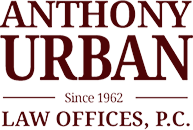
Nursing Home Abuse Attorney in Shamokin, PA
Let Our Firm Help You & Your Family Obtain Financial Compensation
When you decide on a nursing home for a loved one, you expect the staff to fulfill their promise of providing him/her with the best care and treatment. Unfortunately, it is not uncommon that staff members fail to uphold the standard of care, resulting in serious and sometimes fatal injuries suffered by the residents. However, seniors and their families have the right to take legal action against nursing home abuse and neglect.
If your loved one has been the victim of nursing home abuse in Shamokin, PA, look no further than The Law Offices of Anthony Urban, P.C., to help your family recover your entitled compensation. Our legal team can investigate the nursing home, collect and assess evidence, and maximize your award or settlement. We can fight for you, while you help your loved one recover from his/her injuries.
Call (888) 268-0023 or fill out our online contact form to schedule a consultation today.
What is Nursing Home Abuse and Neglect?
Nursing home abuse generally occurs when staff members intentionally harm residents of long-term care facilities, which can result in injury, trauma, and even death. Additionally, other residents and visitors can also inflict such abuse.
According to the World Health Organization (WHO), one in six seniors (adults who are at least 60 years of age) have suffered some type of abuse in a community setting from 2017 to 2018. In a 2019 report by NPR, the Office of Inspector (OIG) found that 97 percent of nursing home abuse cases in five states were not reported to the police as required.
The following are the common types of abuse in nursing homes:
- Physical abuse – Nursing home staff members commit physical abuse by knowingly causing harm to residents. Common examples of physical abuse include punching, hitting, slapping, beating, kicking, pushing, grabbing, shaking, and using objects to inflict pain. Signs of physical abuse include injuries like cuts, bruises, broken or fractured bones, illness or infection, lack of personal hygiene, and weight loss.
- Emotional abuse – Nursing home staff members inflict emotional abuse by deliberately causing anxiety, fear, anguish, and any harm to a resident’s psychological well-being. Common examples of emotional abuse include screaming or yelling, taunting, isolating residents from loved ones, limiting mentally stimulating activity, limiting the use of communication devices and transportation, and ignoring a resident’s needs and requests. Signs of emotional abuse include anxiety, depression, decreased physical health, low self-esteem, onset of aggressive or violent behavior, loneliness, and post-traumatic stress disorder (PTSD).
- Sexual abuse – Residents may be sexually abused by nursing home staff members or other residents. Signs of sexual abuse include having issues sitting or walking, a pelvic injury, bruising of the genitals or inner thigh, bloody or stained underwear, bleeding from the genitals or anus, being diagnosed with an unexplained sexually transmitted disease (STD) or infection (STI), panic attacks, agitation, being emotionally or socially withdrawn, and PTSD.
- Financial abuse – Nursing home residents can be susceptible to financial exploitation and fraud because they increasingly rely on others for basic tasks, which include managing money and bank accounts. Signs of financial abuse include strange withdrawals of account funds, unexpected charges to credit cards, the loss of money or personal property, unpaid bills, changes to wills or powers of attorney, and suspicious additions of beneficiaries to life insurance policies.
Another main type of nursing home abuse is neglect, which occurs when staff members provide poor care or otherwise fail to uphold the standard of care for their residents. Although neglect is not intentional, it can be just as harmful.
Common forms of nursing home neglect include:
- Neglect of basic needs – This type of neglect occurs when staff fails to provide a resident with enough food, water, bathroom visits, or a clean and safe environment. Residents may suffer from malnutrition, dehydration, fatigue, irritability, hair loss, complaints of being cold, pressure ulcer and papery skin.
- Neglect of personal hygiene – This occurs when staff fails to properly assist a resident with bathing, changing, laundry, and cleaning their room on a regular basis. Common signs include appearing dirty, wearing soiled clothes, and facilities with mold and pest issues.
- Medical neglect – This occurs when staff members fail to properly treat health conditions or prevent health issues. Common examples include failing to treat injuries and illnesses, failing to provide proper medications, diabetes not controlled; patient not turned or moved, and failing to call 911 in an emergency. Signs of medical neglect include bedsores, infections, inadequate diabetic care, loss or lack of mobility, and other health issues.
- Emotional or social neglect – This occurs when staff neglects a resident’s emotional and social needs. Common examples include ignoring a resident, leaving a resident alone, and not allowing a resident to interact with other residents, family members, and friends. Since residents with physical or mental disabilities rely on caregivers to help them move and interact with others, they could have a higher risk of social neglect.
- Self-neglect – It is not uncommon for residents to avoid assistance or refuse help from others. However, nursing home staff members have a duty to prevent residents from neglecting themselves. Therefore, staff might not be properly doing their job by allowing a resident to self-neglect.
Common Reasons for Nursing Home Abuse
Many instances of nursing home abuse can be traced back to nursing home owners and administrators, who are committed to making profits rather than providing quality care for residents. Owners may keep the profits for themselves, instead of hiring more nursing home staff members, purchasing essential care equipment and items, and repairing damage to the property.
However, staff members can also be directly liable for inflicting harm on or neglecting residents. Although they may blame their actions on a wide range of reasons, caregivers have a duty to provide adequate care for their residents.
The following are the common reasons for nursing home abuse and neglect:
- Profit-focused owners – According to 2016 data from the Centers for Disease Control and Prevention (CDC), nearly 70 percent of all nursing homes were for-profit facilities, rather than not-for-profit facilities. Sadly, as we mentioned earlier, many for-profit nursing homes are committed to making money, instead of fulfilling the needs of their residents and staff members.
- Low-quality facilities – The majority of for-profit nursing homes operate on “related party transactions,” which means the owners outsource aspects of the care they provide to companies they also have stake in. Therefore, owners pay themselves using the nursing home’s budget. When related party transactions drain nursing homes of their operating budget, residents are deprived of proper care and resources. Nursing homes may not be able to pay for basic amenities (e.g., bedding and toiletry items), repairs to their facilities, and even additional staff members.
- Understaffing – Most nursing homes do not have enough caregivers to handle the demands of the facility. Furthermore, residents can significantly outnumber staff members. Understaffing can place great stress on current caregivers. Staffing shortages can increase burnout rates and tension among staff members, prevent every resident from receiving care in a timely manner, and result in caregiving errors.
- Poor training – Nursing home administrators and senior staff members are responsible for ensuring all employees understand how to properly care for the residents. If caregivers are not properly trained, residents will suffer harm. Common issues associated with inadequate training include not checking for bedsores, not changing the residents’ bedsheets and clothes, improperly administering medications, not being able to perform CPR, or failing to properly treat residents for infections and diseases.
- Low income – Since nursing home jobs often provide low pay, many people who are ultimately hired either have little experience working with elderly residents or view the job as only temporary. When you combine low pay with lack of on-the-job training, staff members may not be as motivated to provide quality care to residents. In fact, caregivers may even be hostile towards residents.
How to Report Nursing Home Abuse in PA
Both state and federal law outline many rights and protections for nursing home residents. Under Pennsylvania’s Adult Protective Services Act, all residents have the right to be free from abuse, neglect, and exploitation.
If you suspect that your loved one is a victim of nursing home abuse, you must report the misconduct and hold the nursing home operator and/or staff members accountable. Families in the state can report nursing home abuse to the Pennsylvania Department of Health.
The following are several ways to file a complaint:
- Call 1-800-254-5164 to speak directly with a health department professional or leave a voice message that includes their name, their telephone number, the name of the facility, the specific issues related to resident-provided care and services, and any details that would help complete a thorough investigation.
- Use the complaint form
- Email: c-ncomplai@pa.gov
- Send mail to:
- Division of Nursing Care Facilities Director
Pennsylvania Department of Health
Division of Nursing Care Facilities
625 Forster St., Room 526, Health and Welfare Building
Harrisburg, PA 17120-0701
- Division of Nursing Care Facilities Director
- Fax 717-772-2163
If your loved one is experiencing a life-threatening emergency, always contact local law enforcement officials.
How to File a Nursing Home Abuse Lawsuit in PA
Pennsylvania civil law allows abused and neglected residents to file a private civil lawsuit against the nursing home or assisted living facility. Most nursing home abuse cases are based on negligence, meaning the at-fault party (e.g., nursing home staff members, nurses and doctors, administrator, owner, etc.) had a careless disregard for the safety and wellbeing of its residents.
The following are the elements you must prove to file a negligence-based nursing home abuse lawsuit in Pennsylvania:
- The defendant had a duty to provide reasonable care to the plaintiff (e.g., the injured resident)
- The defendant breached their duty of care by acting in a negligent, reckless, or malicious manner
- There is a link between the breach and the injuries the plaintiff suffered, based on the “preponderance of the evidence” (i.e., the defendant “more likely than not” harmed the plaintiff)
- The plaintiff suffered damages (e.g., medical expenses, pain and suffering, emotional distress, etc.) due to the defendant’s conduct
Other grounds for a nursing home abuse lawsuit include:
- Breach of contract
- Medical malpractice
- Assault
- Neglect
- Fraud
- Pain and suffering
- Emotional distress
- Mental anguish
- Misappropriation of funds
- Failure to follow state nursing home standard-of-care laws
- Wrongful death
The average amount of awards and settlements from nursing home abuse lawsuits is hundreds of thousands or even millions of dollars in some cases. An experienced personal injury lawyer can ensure you take the right steps to file a lawsuit and help you obtain the most amount of damages possible.
Schedule a Consultation Today
Our firm is ready to help you and your loved one obtain your entitled compensation and hold nursing home operators and/or staff members accountable for their abusive conduct. The award or settlement can help you and your family afford medical treatment and other expenses.
Do not hesitate to contact us today at (888) 268-0023 to discuss your case with our legal team.


Speak to Our Team During a Consultation
Get In Touch
Schedule a Consultation Today

